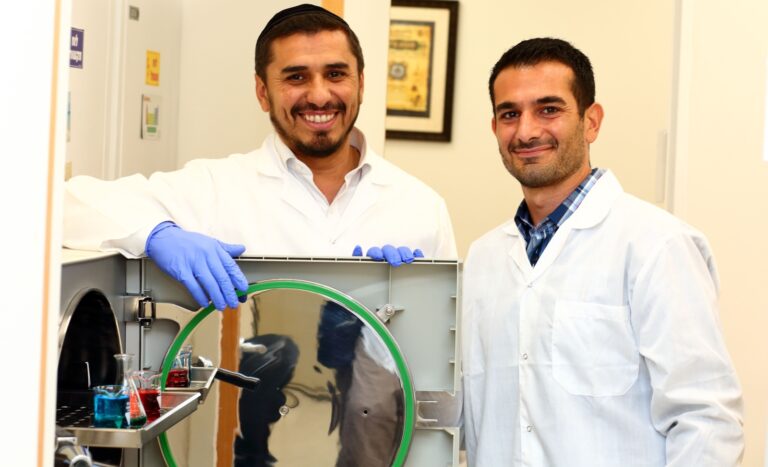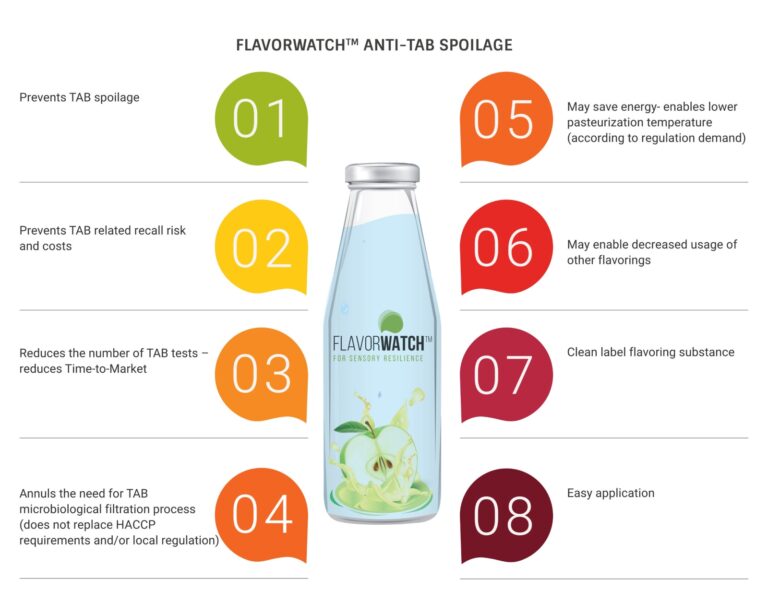Preventing microbial spoilage in clear soft drinks wasn’t a problem familiar to Yehoshua Maor until he stumbled on its answer seven years ago.
Maor, who has a PhD in medicinal chemistry, was researching natural botanical treatments for pancreatic cancer at his Phytor lab in Jerusalem.
“I had brought a plant resin, a mixture of several compounds, to the lab to evaluate how it affects mitochondria. Because mitochondria are very similar to bacteria, we used bacteria in this modeling.”
When Phytor microbiologist Lior Sinai conducted the experiment, he saw something unexpected: The plant resin was efficiently killing thermoacidophilic bacteria (TAB) spores.
Spores are hardy cells that bacteria produce to defend themselves. TAB spores thrive in warm acidic conditions and are notoriously difficult to eradicate.
Maor checked whether any industry was experiencing a “pain point” caused by those specific bacterial spores.
“Innovations should be answering a problem that exists,” he explains.
He soon learned that TAB spores were a major pain point for clear beverage bottlers. So in 2017, Maor founded Resorcix to solve it.
The plant-based product, called Flavorwatch, is now preventing spoilage of drinks sold in Israel and soon in Europe and Asia.
Pasteurization doesn’t help
Maor explains that dry TAB spores hibernate like bears in winter. They survive the pasteurization that kills active bacteria.
“Then, when they find water, sugar and a nice temperature” – exactly what happens in the bottling process – “they go back to an active bacterial state, coming back to life,” he tells ISRAEL21c.

Good manufacturing practices can reduce but not eliminate TAB.
Existing approaches for killing reactivated TAB are either allergenic or aren’t transparent and therefore can’t be used in clear drinks.
This leaves clear beverage bottlers without a surefire solution. If spores proliferate enough to cause a telltale hazy appearance, off odor or medicinal taste, the consequence is a product recall, which is costly in terms of both money and brand credibility.
“So there was a need for an agent to destroy the spores as soon as they become bacteria, but that agent needed to be flavorless and colorless,” says Maor.
It also had to be natural.
“People want to see fewer ingredients and more natural ingredients,” says Maor. “Ours is the only flavorless, colorless solution that is natural and non-dairy. Bacteria don’t become resistant to it, and there is no problem with allergies.”
Partnering with Gat Foods
Microbiology tests at the Hebrew University over the course of six months found zero TAB in a pineapple-based clear beverage to which Flavorwatch was added. The beverage remained TAB-free for a further eight months in an independent analysis.
Gat Foods, an Israeli subsidiary of International Beer Breweries (IBBL) and supplier of fruit-based solutions for the global beverage industry, decided to invest in Flavorwatch. Gat Foods partnered with Resorcix in commercializing the product and proving its efficacy on an industrial scale.

Shachar Shaine, CEO of Gat Foods, confirmed that “the TAB bacteria strain – which negatively impacts the quality and organoleptic properties of most categories of still, non-alcoholic beverages – had been confounding beverage bottlers for decades.”
Incorporating Flavorwatch in clear, high-acid still beverages such as fruit water, said Shaine, enables Gat Foods to “help bottlers keep their positive brand image” by avoiding TAB-related recalls.
“Consumers deserve full transparency and maximum quality throughout the entire shelf life of a beverage,” said Shaine.
The raw plant base of Flavorwatch is already a permitted additive on the FDA’s Substances Added to Food list, giving the Jerusalem-based Resorcix an advantage for penetrating this $12 billion market in the future.
Meanwhile, several bottlers in Europe and Asia will soon start using Flavorwatch, which can be added to beverage bases or syrups in the preparation phase or directly to the beverage tank before pasteurization.
The power of botanicals
Maor tells ISRAEL21c that he met a prospective Moroccan customer recently.
He was in that North African country not to promote Resorcix but to deliver a talk about medicinal cannabis, the topic of his PhD at Hebrew University and his postdoc at Harvard.
It was his interest in cannabis that led him to explore the potential of other botanicals such as the plant resin in Flavorwatch.
Maor worked for four years as coordinator of the Hebrew University of Jerusalem’s Center of Excellence in Agriculture and Environmental Health before going in an entrepreneurial direction.
Phytor, the pharmacology and toxicology lab where Flavorwatch was serendipitously discovered, is now focused on early detection of Parkinson’s and Alzheimer’s diseases through saliva analysis.
Resorcix, a subsidiary of Phytor, includes head of R&D Lior Sinai, the award-winning microbiologist whose observation kicked off the project. Its head of chemistry, Hanna Hamou-Cohen, has a master’s degree from École Nationale Supérieure des Industries Chimiques (ENSIC) in France.
For more information, click here.
















